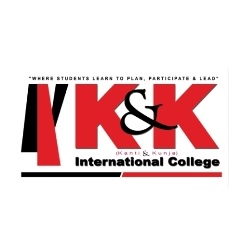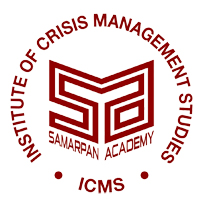Overview
The Central Department of Hindi at Tribhuvan University has a long and significant history in promoting Hindi education in Nepal. Over the years, it has played a pivotal role in providing quality education and nurturing a deep understanding of Hindi language and literature. Let's delve into the journey of this department, from its early beginnings to its present-day offerings.
Establishment of Colleges and Hindi Teaching:
In 1955 AD, the establishment of colleges in various regions of Nepal marked the beginning of formal education in the country. With the active support of local communities, political leaders, intellectuals, teachers, and students, colleges emerged in Viratnagar, Rajbiraj, Janakpur, Birganj, Nepalganj, among others. Alongside other subjects, the teaching of Hindi found its place in these colleges, becoming an integral part of the curriculum.
Inclusion of Hindi in Tribhuvan University:
During this period, Nepal faced a lack of universities. The foundation stone of Tribhuvan University was laid in 1958 AD, and until then, examination systems were conducted by Patna University. Subsequently, upon the establishment of Tribhuvan University in 1959 AD, the affiliation with Patna University ended. Tribhuvan University took over the responsibility of conducting examinations and became the hub of higher education in Nepal.
Expansion of Hindi Education:
With the integration of colleges affiliated with Patna University into Tribhuvan University, the momentum for Hindi education in Nepal increased significantly. The public's enthusiasm grew, leading to the establishment of numerous colleges across the country, fostering the spread of Hindi education.
Educational Reforms and Challenges:
In the year BS 2017 (1960 AD), the Panchayati system brought radical changes to the education sector. The government assumed responsibility for education from primary to university levels. As a result, the teaching of Hindi was temporarily suspended in Trichandra and Padma Kanya Colleges. The curriculum underwent substantial transformations, and the traditional examination system was replaced by a semester system in 1974 (BS 2030).
Current Hindi Education Offerings:
Today, the Central Department of Hindi, affiliated with Tribhuvan University, offers Hindi education at various levels. Hindi is taught up to graduation in colleges such as Mahendra Morang Campus Biratnagar, Mahendra Bindeshwari Multiple Campus Rajbiraj, Ramsworup Ramsagar Multiple Campus Janakpur, Thakurram Campus Birganj, Nepalganj Campus Nepalganj, and Padma Kanya Campus Kathmandu. Additionally, Tribhuvan University itself offers post-graduation and graduation programs in Hindi language and literature.
Overall, The Central Department of Hindi at Tribhuvan University stands as a testament to the growth and development of Hindi education in Nepal. From its humble beginnings in affiliated colleges to its present-day offerings, it has consistently provided quality education and shaped the understanding and appreciation of Hindi language and literature. As the department continues to flourish, it remains committed to nurturing students' linguistic and cultural abilities and contributing to the academic and cultural landscape of Nepal.
The Development of Hindi Education in Nepal
In addition to the ancient Sanskrit education, Hindi has played a significant role in the educational landscape of Nepal right from the early stages. During the latter half of the king's reign, approximately 80 to 90 percent of the teachers in schools across Biratnagar, Rajbiraj, Siraha, Janakpur, Birgunj, Nepalganj, and other regions came from Bihar and Uttar Pradesh in India.
Furthermore, prior to the establishment of the Nepal SLC (School Leaving Certificate) Board, school examinations were conducted by the Patna Secondary Board. Even after the establishment of the Nepal SLC Board, until 1962-63, the curriculum followed in all schools in Nepal was based on the Patna Secondary Board's syllabus, with the addition of a special Nepali letter. During this time, Hindi served as the medium of instruction in schools throughout the Terai-Madhesh region.
Courses Offered:
MA in Hindi:
MA in Hindi at the Central Department of Hindi, Tribhuvan University: The MA in Hindi program is a comprehensive postgraduate course that aims to provide students with a strong foundation in Hindi language and literature. Through the study of Hindi grammar, vocabulary, and literary works, students develop advanced proficiency in Hindi and gain a deep understanding of Hindi literature's historical and cultural context. The program encourages critical thinking, research skills, and prepares students for various career opportunities in fields such as translation, teaching, research, and content writing.
PhD in Hindi:
PhD in Hindi at the Central Department of Hindi, Tribhuvan University: The PhD in Hindi program is a doctoral-level course designed for students aspiring to become experts in the field of Hindi language and literature. It offers a research-intensive curriculum where students conduct original research under the guidance of experienced faculty members. The program emphasizes advanced theoretical and analytical skills, enabling students to make significant contributions to the field of Hindi studies. Graduates of the PhD program are prepared for academic and research positions, as well as leadership roles in educational institutions, publishing houses, and cultural organizations.
Contact Central Department of Hindi Tribhuvan University's administrative office for detailed information on the course, admissions, location, fees, scholarships, facilities, counseling, or eligibility.















